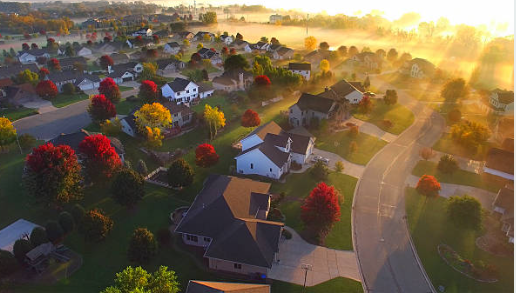What are some strategies for managing mental health in rural communities?
In this article, we will explore a range of evidence-based strategies for managing mental health in rural communities, from simple lifestyle changes to more advanced interventions.

Selfpause Affirmation App
Download the app to get 1,000’s of affirmation meditations and everything you need to write, record and listen to your own.
When it comes to mental health, the problems in rural areas are different from those in cities. Compared to cities, rural areas often have less access to mental health services, which can make it take longer for mental health problems to be diagnosed and treated. Also, the stigma around mental health can be especially strong in rural areas, which can make people less likely to seek help. Addressing mental health problems in rural areas requires a multifaceted approach that includes increasing access to care, addressing stigma, developing community-based programs, using peer support, partnering with primary care providers, building resilience and coping skills, using technology and online resources, collaborating with local organizations and community leaders, addressing systemic inequities, and providing care that is culturally sensitive.
Getting care to more people
One of the best ways to deal with mental health in rural areas is to make it easier for people to get care. There are often fewer mental health professionals per person in rural areas, and the ones that are there may be far away from the people who need care. To fix this, efforts can be made to increase the number of mental health providers in rural areas through programs like loan repayment programs and incentives for mental health professionals to work in rural communities. Telehealth and telemedicine can also be used to provide mental health services remotely, making it easier for people in rural areas to get care.

Tackling Stigma
In rural areas, it is very important to get rid of the stigma that surrounds mental health. People in rural areas may see mental health problems as a sign of weakness or as something that should be kept private. To get rid of stigma, it’s important to get people educated and aware about mental health and to encourage people to talk openly about mental health issues. Community-based programs, like mental health fairs and programs to teach people about mental health, can also be made to improve mental health and well-being and reduce stigma.
Creating programs for the community
Community-based programs can be helpful in rural areas to improve mental health and well-being. For example, peer support programs, in which people who have been through mental health problems themselves help and guide others, can help people get better and reduce stigma. Community gardens, exercise groups, and other activities that improve physical and mental health can also be set up to help people connect with each other and get support.
Using help from other people
People in rural areas who are having trouble with their mental health can benefit from peer support. Peer support programs, in which people who have been through mental health problems themselves give support and advice to others, can help people get better and reduce stigma. These programs can also offer important social support, which can be especially helpful for people who feel alone or cut off from their community.

Working together with primary care doctors
In rural areas, mental health problems can be hard to deal with, but primary care providers can help a lot. Since there may not be many mental health providers in rural areas, people with mental health problems may first talk to their primary care provider. By working together with primary care providers, mental health professionals can help make sure that people get the right care at the right time. Primary care providers can also be taught to look for and treat common mental health problems like anxiety and depression.
Building up resilience and coping skills
Building resilience and coping skills is another important way to help people in rural communities deal with their mental health. Resilience and coping skills can help people deal with stress and problems better, which can make them less likely to have mental health problems. Community-based programs, like mindfulness-based stress reduction programs and workshops on building resilience, can help rural communities build resilience and learn how to cope. Support groups and peer support programs can also help people learn and practice coping skills in a safe place.
Using technology and resources on the Internet
The mental health of people in rural areas can also be managed with the help of technology and online resources. Telehealth and telemedicine, for example, can give people who can’t get to a mental health provider in person access to mental health services. People can get information and tools to help them deal with their mental health problems from websites and apps about mental health. Social media can also be used to help people feel better about their mental health and connect them with support groups and peer support programs.
working together with local groups and community leaders
Managing mental health in rural communities can also be done well by working together with local groups and community leaders. Local groups like churches and community centers can be great allies in the fight for mental health and well-being. Leaders in the community, like mayors and school principals, can help bring attention to mental health issues and push for the creation of programs that are based in the community. By working together, mental health providers, local groups, and community leaders can help rural communities build a culture of mental health support and awareness.

Getting rid of systemic unfairness
Inequalities in the system, like poverty and lack of access to education and health care, can lead to mental health problems in rural areas. To fix these problems, we need to change policies, create community-based programs, and work with local organizations and community leaders. For example, efforts can be made to give people in rural areas better access to education and health care, which can help lower the risk of developing mental health problems. Also, policies that deal with poverty and unequal incomes can help improve mental health and well-being in rural areas.
Care that takes into account a person’s culture
It’s important for rural communities with mental health problems to get care that takes their culture into account. People in rural areas often have different cultural values and traditions, which may affect how they think about mental health. People who work in mental health care in rural areas may be better able to help if they know the cultural norms and values of those areas. Also, mental health professionals who come from rural areas themselves may be better at providing care that is sensitive to culture.
In conclusion, dealing with mental health problems in rural areas requires a multifaceted approach that includes increasing access to care, addressing stigma, developing community-based programs, using peer support, partnering with primary care providers, building resilience and coping skills, using technology and online resources, working with local organizations and community leaders, addressing systemic inequities, and providing culturally sensitive care. By working together, mental health providers, local organizations, and community leaders can help build a culture of mental health awareness and support in rural communities. This can improve the overall health and wellbeing of people who live there.
